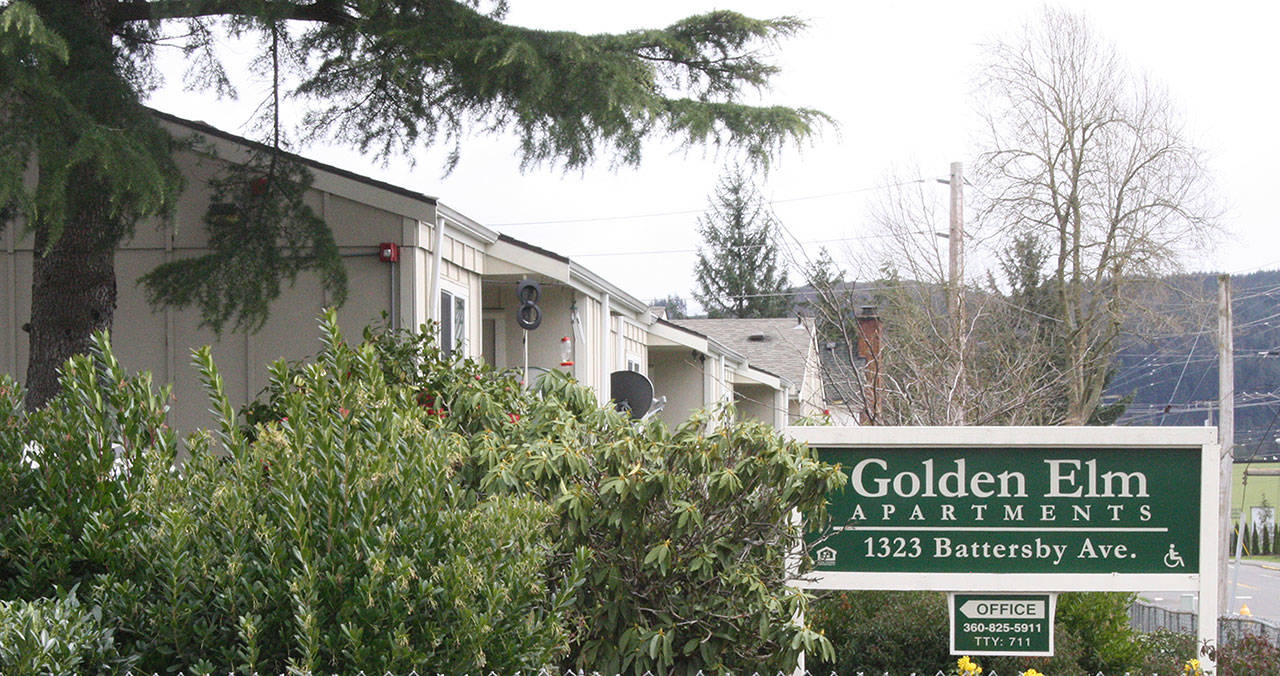Stories abound regarding the housing crisis plaguing American cities both large and small, where even working-class families can have difficulty finding an adequate and affordable place to rest their heads.
Sometimes, those big-picture issues can be seen at the grassroots level, played out locally. That’s the case in Enumclaw, for example, where an apartment complex is owned and managed by a Seattle-based company that is actively involved in a nationwide effort to combat runaway costs.
The company is Vitus, the Enumclaw complex is the Golden Elm Apartments and the still-new campaign goes by the name of Home1.
Home1 is a relatively new movement that aims to shine a spotlight on the nation’s housing woes. It launched this month in a room filled with leaders from the development and housing industries.
The goal of Home1 advocates is to motivate and inspire politicians, the media and the general public to address the escalating shortage of housing that average Americans can afford.
Home1 was created by Public Interest, a California-based, “cause-driven” marketing firm and media company.
Bringing the national story to street-level Enumclaw is Stephen Whyte, the founder and managing director of Vitus. The company got involved in the Home1 effort because it has, as part of its business model, a stake in preserving and enhancing affordable housing properties.
For example, Enumclaw’s Golden Elm complex is designed strictly for senior citizens and carries some of the “affordable housing” mandates. Tenants pay no more than 30 percent of their income for their monthly rent.
That’s the longstanding history at Golden Elms, which was built more than three decades ago as part of a program backed by the U.S. Department of Agriculture. It was an example of the “affordable” model then, a practice that was locked in when Vitus purchased the 35-unit, Battersby Avenue apartment complex about eight years ago.
Whyte said one of the things he found appealing with the Home1 campaign is its ongoing effort to put things in real-world terms. Instead of talking strictly dollars and cents, Home1 notes that a single person might have to work 80 hours per week to pay for a one-bedroom apartment in Seattle.
It is, Whyte said, “a totally refreshing approach” to a complex problem.
“For the first time in our nation’s history, people with good jobs can’t afford homes,” Whyte added. “In my 25 years in affordable housing development, I have seen this issue grow from a conversation into a full-blown national crisis.”
Rising rents have pushed many Americans into a precarious balance where one injury, unexpected expense or late paycheck is enough to tip them into a cycle of homelessness. Information provided by Vitus notes that 2.9 million people per year are kicked out of their homes because they can’t afford their rent.
That was the motivation for developers and those in the finance industry to launch Home1 – to combat the outdated notion that everyone who has a job and works hard can return to a comfortable home.
The campaign has multiple goals, including an effort to how the housing issue ties to America’s future. Home1 intends to work through the political system to address issues contributing to skyrocketing rents and home costs.
“There are tools out there” to combat the housing troubles, Whyte said, noting that it won’t take anything too dramatic in the way of legislation. Rather, current practices simply need to be addressed in a “common sense” way, he said.
While much of the talk centers around working-class families, there’s statistical data pointing to the current – and future – problems facing an American population that grows older daily. Baby Boomers continue their generational march into retirement years and many are ill-equipped to deal with a tough housing market.
Vitus points out numbers from the independent and nonpartisan General Accountability Office that show 1,000 Baby Boomers retiring every day, a trend expected to continue for perhaps the next 15 years. It’s estimated that as many as half have no retirement savings.
For those relying on Social Security, a monthly benefit of perhaps $1,300 will not cover life’s essentials, like housing, food and healthcare.


